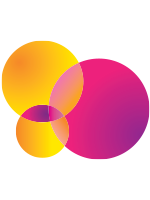Mike Grijseels
Scripting for inclusion
Athena Institute, Vrije Universiteit Amsterdam, [email protected]
Supervisors: Barbara Regeer, Teun Zuiderent-Jerak, Jacqueline Broerse
Background
I was originally trained an exercise therapist and worked in elderly care for approximately 6 years. Having many up close and personal experiences with health care I decided I wanted to try and improve it. I figured the best way to improve health care is to study it more thoroughly and I pursued a MSc in International Public Health at the Vrije Universiteit Amsterdam. After graduating, I decided I wanted to combine my practical health care professional side with my passion for theoretical research. I am currently pursuing a PhD at the Athena Institute where I try to combine both.
Summary PhD Project
People with disabilities face barriers in accessing health care services, education, employment, housing and transport. Social problems persist and cut across countries, communities, job sectors, services and types of disability. A potential pathway towards greater or better inclusion of people with disabilities could be through the use of technologies. In my PhD I study the possibilities technological objects offer for inclusion in a range of settings including the job market to accessing health care. In doing so I hope to answer the question; how can we use technological innovations to improve inclusion of people with disabilities and prompt social change?
Acknowledging that prompting social change is a complex and often non-linear process our study applies transdisciplinary, participatory and action-research based methods. In this approach people with disabilities, policy actors, researchers and other relevant stakeholders learn together and co-produce knowledge to improve inclusion. By actively participating ourselves; trying to change practices and reflexively learning from them we hope to increase the value of the knowledge produced and to increase the chances of our research contributing to social change. This fits neatly with the developments in making and doing but we also take our cues from other perspectives and insights in STS. We draw on actor-network theory (ANT) to look at how disability is ordered in different configurations of non-human and human actors through the introduction of a technological object. We revive the concept of scripts to look at how disability is made, and inclusion is done, time and time again (Akrich, 1992). Additionally, we borrow from the multi-level perspective and try to place the actor-networks into the more hierarchical structure of this perspective. This will allow us to study more thoroughly how our findings can contribute to a transition towards more inclusion of people with disabilities.
The combination of transdisciplinary, action-based methods, ANT and the multi-level perspective allows us to keep a strong connection between disability- and technology theories/conceptualizations and a practical focus on empirics, action and the wider transition towards more inclusion. This will hopefully provide a rich and thorough account of the role technology can play in the inclusion of people with disabilities. By doing this we hope to contribute to social change and challenge current inequities and inequalities.


